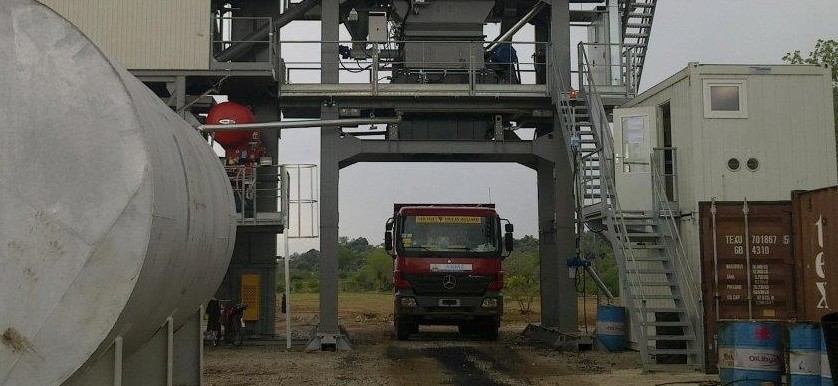South Sudan’s government spent fifteen times its budget on roads-building during the fiscal year 2012/2013 even as spending on public services and civil service salaries was slashed, according to finance documents from the national finance ministry.
Some of the payments for road construction during this period went to a company linked to President Salva Kiir, ABMC. Radio Tamazuj recently reported that Kiir benefited from ABMC operations at his farm in Luri in Central Equatoria and had other ties to the company through close associates.
South Sudan ordered oil companies to shut down in January 2012. The loss of oil revenue forced the government to implement austerity measures throughout the fiscal year 2012/2013 and to borrow billions of dollars from foreign lenders.
Yet in spite of austerity, government spending on roads construction soared.
Quarterly financial reports produced by the Ministry of Finance also show that spending on roads-building was one of the government’s only capital expenditures during the period of the oil shutdown. In its third quarter budget execution report for 2012/2013, the finance ministry noted, “Work continued on some vital road construction projects that were not included in the budget.”
“Spending on priority road construction continued even though there was not budget for this work. The infrastructure sector capital spending now exceeds the budget by SSP 216 million,” the report adds.
By the end of the year, the total spending by the Ministry of Roads and Bridges reached to 333 million South Sudanese pounds, more than fifteen times its allocated budget.
South Sudan’s finance ministry disclosed in its 2012/2013 fourth quarter budget execution report that the government had significantly overspent its overall capital budget. (In finance, ‘capital’ spending means expenses used for investments in physical assets or infrastructure improvements).
“The bulk of this overspending is made up by infrastructure investments. The Ministry of Roads and Bridges spent SSP 333 Million instead of the SSP 22 Million budgeted. SSP 100 Million were spent without due process,” the ministry reported.
Table 9 in the same report (“Overspending Agencies, Capital”) states that the the Ministry of Roads and Bridges spent 333 million pounds compared to a budget of 22 million, 1513% of the budget.
During the same period state transfers were reduced to below-budget levels owing to austerity.
Above-budget spending on roads continued into the fiscal year 2013/2014. “Capital spending exceeded the budgeted amount in the first quarter despite austerity… The bulk of overspending was on investments in the infrastructure sector. The Ministry of Roads and Bridges spent SSP 72 million instead of the SSP 5.5 million budgeted,” the ministry reported.
Lack of money during the same period hurt spending on social services: “At the sector level, there was overspending in the Security, Public Administration and Infrastructure sectors. Given the cash constraints the Government faces, this came at the cost of spending in other sectors.”
“Budget execution was particularly low for the Health, Economic Functions and Social and Humanitarian sectors,” the ministry disclosed.
‘Without due process’
Some of the payments made to road companies were irregular, according to finance ministry documents. The 2012-13 Second Quarter Budget Execution Report states, “Two payments for road construction totaling SSP 40 million were made outside of the normal payment process, financed by loans from a domestic commercial bank.”
The report did not say which company received these payments.
Similarly, the fourth quarter report says, “SSP 100 Million were spent [by the Ministry of Roads and Bridges] without due process.”
In a phone call with Radio Tamazuj, Finance Ministry Director-General Philip Ajack declined to provide more information about these reports. While admitting that the finance ministry had records about spending by the roads ministry, he declined to say why the ministry overspent its budget.
“Road authorities talk on their own behalf,” he said.
This report is published as part of a special investigative series. Anyone wanting to comment on this report or send further information should contact Radio Tamazuj here.



